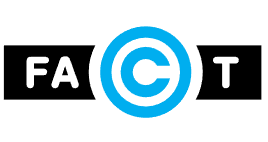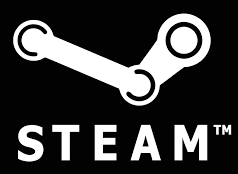
While no longer the most visited ‘pirate’ site on the Internet, The Pirate Bay arguably remains the most recognizable brand. As a result, the platform has been at the center of dozens of legal processes around the world, each designed to make the platform less accessible to the public.
Aside from direct actions to take the site down, all of which have failed, the torrent index regularly finds itself listed in lawsuits and complaints which aim to force Internet service providers to block consumer access to the site.
Back in 2015, Spain was added to that expanding list when local ISP Vodafone admitted that following a government complaint, it had rendered the site’s main domain inaccessible.
According to the Ministry of Culture and Sport, procedures took place between June 2014 and November 2018 to block several associated domains, including those ending in .se, .org, .net, and .com. It now appears the government is attempting to finish the job.
Following a procedure initiated by rights holders represented by the Association of Intellectual Rights Management (AGEDI) and music group Promusicae (Productores de Música de España) and a subsequent request from the Commission of Intellectual Property (also known as the Anti-Piracy Commission) the central courts of the Contentious-Administrative Chamber of the National Court have authorized additional blocking.
The Ministry of Culture and Sport hasn’t detailed the precise targets but describes them as more than 60 additional domains/sites that are allegedly linked to the notorious torrent site. The site itself isn’t believed to operate that many alternative domains so it’s likely they’re proxies, mirrors and clones that utilize The Pirate Bay’s familiar branding.
“This massive blocking of web pages that, under the brand ThePirateBay, were illegally using the rights of our artists and creators, has an exemplary value for us because it shows that even with the greatest pirates who try repeatedly to circumvent the mechanisms of defense of copyright, the system of the Anti-Piracy Commission works,” says Adriana Moscoso del Prado, general director of Cultural Industries and Cooperation at the Ministry of Culture and Sports.
The government department says the order requires local Internet service providers to block subscriber access to the domains within 72 hours of being notified of the court order. Notifications were sent out yesterday meaning that ISPs should have blockades in place well before the end of the week. It is not yet clear which ISPs have been notified.
The Ministry of Culture notes that the Anti-Piracy Commission has to date targeted 479 sites but the overwhelming majority (92.69%) have removed infringing content once they’ve been officially notified. The Pirate Bay never removes any infringing content so faced with that intransigence, the authorities targeted it with judicial blocking orders, including the one handed down yesterday.
Following a complaint by several Hollywood studios, a similar order was handed down just a few days ago targeting Spanish-language sites Exvagos1.com, Seriesdanko.to, Seriespapaya.com, Cinecalidad.to , Repelis.live, Pelispedia.tv, Cliver.tv, Descagasdd.com and Pepecine.me.
Earlier this year, a local court ordered the country’s largest Internet service providers to begin blocking seven torrent sites including 1337x and LimeTorrents.
Source: TF, for the latest info on copyright, file-sharing, torrent sites and more. We also have VPN reviews, discounts, offers and coupons.

 Strike 3 Holdings, one of the most active copyright trolls in the United States, has filed cases against
Strike 3 Holdings, one of the most active copyright trolls in the United States, has filed cases against 
 With millions of dedicated fans around the world, Mixed Martial Arts (MMA) events are extremely popular.
With millions of dedicated fans around the world, Mixed Martial Arts (MMA) events are extremely popular.




 Founded in 2007, SeriesYonkis was a Spanish site where users could find links to pirated copies of the latest movies and TV-shows.
Founded in 2007, SeriesYonkis was a Spanish site where users could find links to pirated copies of the latest movies and TV-shows.





 ISP blocking has become a prime measure for the entertainment industries to limit the availability of pirate sites on the Internet.
ISP blocking has become a prime measure for the entertainment industries to limit the availability of pirate sites on the Internet.